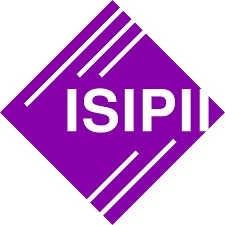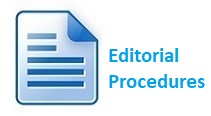Perilaku pencarian informasi miner cryptocurrency di grup Facebook Miner Indonesia
Abstract
This study examines the information-seeking behavior related to mining and cryptocurrency exhibited by cryptocurrency miners in the Facebook group Miner Indonesia. The research aims to investigate the information-seeking behavior concerning mining and cryptocurrency among cryptocurrency miners within the Facebook group Miner Indonesia. The study employs a qualitative method with a case study approach. Data collection techniques include observation, interviews, and literature review. The research model utilizes David Ellis's model, which comprises six stages: starting, chaining, browsing, differentiating, monitoring, and extracting. Four members of the Facebook group Miner Indonesia serve as informants for this study. The results indicate that during the starting phase, informants begin to comprehend the information they require regarding mining and cryptocurrency. In the chaining phase, informants conduct more in-depth searches to fulfill their remaining information needs. During the browsing stage, informants utilize internet resources such as Google, YouTube, Facebook, and Reddit to seek necessary information. In the differentiating phase, informants compare information obtained from Facebook with other information sources. The monitoring stage involves informants regularly observing group posts. In the extracting phase, informants apply the acquired information by implementing it on their mining equipment. In conclusion, the researcher found that all four informants engaged in the six stages of information-seeking behavior before obtaining the required information.
Keywords
Full Text:
PDFReferences
Alhusna, F. N., & Masruroh, S. (2021). Model perilaku pencarian informasi dalam memenuhi kebutuhan informasi: Kajian literatur. IJAL (Indonesian Journal of Academic Librarianship), 5(1), 19–28. Retrieved from http://journals.apptisjatim.org/index.php/ijal/article/view/100
Ashford, K. (2023). What is cryptocurrency? Retrieved from Forbes Advisor website: https://www.forbes.com/advisor/portfolio/what-is-cryptocurrency/
Cahyono, A. S. (2016). Pengaruh media sosial terhadap perubahan sosial masyarakat di Indonesia. Publiciana, 9(1), 140–157. https://doi.org/10.36563/publiciana.v9i1.79
Carr, C. T., & Hayes, R. A. (2015). Social Media: Defining, Developing, and Divining. Atlantic Journal of Communication, 23(1), 46–65. https://doi.org/10.1080/15456870.2015.972282
Ellis, D. (1987). The derivation of a behavioural model for information retrieval system design (University of Sheffield). University of Sheffield. Retrieved from https://core.ac.uk/download/pdf/9554645.pdf
Hafidzan, M. D., Yusup, P. M., & Rodiah, S. (2021). Perilaku pencarian informasi otomotif oleh pelanggan youtube channel. Informatio: Journal of Library and Information Science, 1(3), 281–294. https://doi.org/10.24198/inf.v1i3.35525
Januatisa, N. C. M., Winoto, Y., & Khadijah, U. L. S. (2022). Penyebaran informasi wisata kuliner pada Instagram @Bogoreatery di Kota Bogor. Informatio: Journal of Library and Information Science, 2(2), 123–136. https://doi.org/10.24198/inf.v2i2.40693
Kaspersky. (2018). What is cryptocurrency and how does it work? Retrieved from Kaspersky Lab website: https://www.kaspersky.com/resource-center/definitions/what-is-cryptocurrency
Kemp, S. (2024). Digital 2024: Indonesia. Retrieved from Datareportal website: https://datareportal.com/reports/digital-2024-indonesia
Kuhlthau, C. C. (1991). Inside the search process: Information seeking from the user’s perspective. Journal of the American Society for Information Science, 45(5), 361–371.
Samsu, S. (2017). Metode penelitian: Teori & aplikasi penelitian kualitatif, kuantitatif, mixed methods, serta research and development. Jambi: Pusaka.
Simanjuntak, B. A., & Sosrodihardjo, S. (2014). Metode penelitian sosial (Edisi Revisi). Jakarta: Yayasan Pustaka Obor Indonesia.
Sugiyono, S. (2022). Metode penelitian kuantitatif, kualitatif dan r&d.
Bandung: Alfabeta.
Westerman, D., Spence, P. R., & Heide, B. Van Der. (2014). Social media as information source: Recency of updates and credibility of information. Journal of Computer-Mediated Communication, 19(2), 171–183. https://doi.org/10.1111/jcc4.12041
Wilson, T. D. (2000). Human information behavior. Informing Science: The International Journal of an Emerging Transdiscipline, 3(2), 049–056. https://doi.org/10.28945/576
DOI: https://doi.org/10.24198/inf.v4i3.57128
Refbacks
- There are currently no refbacks.
Copyright (c) 2024 Author

This work is licensed under a Creative Commons Attribution-ShareAlike 4.0 International License.
Informatio Indexed by:
Editorial Office :
Library and Information Science Study Program, Building 3 Floor 2, Faculty of Communication Science, Universitas Padjadjaran
Jl. Raya Bandung Sumedang Km. 21 Jatinangor, Sumedang 45363
Principal Contact :
Phone : 08122184219
Email : rully.khairul@unpad.ac.id

 ,
,




2.png)


